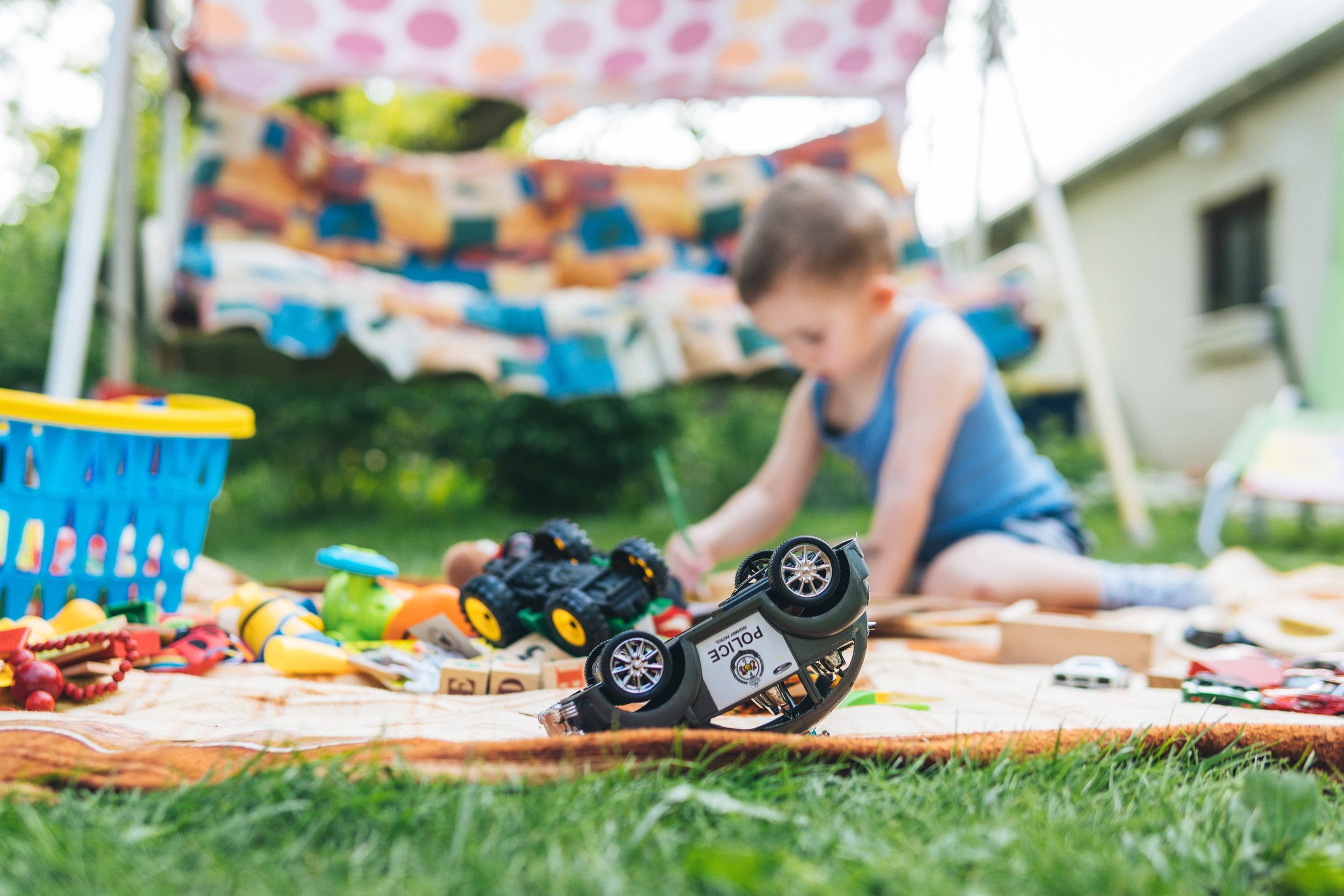Reflecting on Your Childhood Will Make You a Better Nanny
We all know the typical credentials for nannies: reliable, safe, clean background, CPR certified, you get the idea… but how many nannies reflect on their own childhood? Although this can’t really be a job requirement (though maybe it should), every nanny can take it upon themselves to be the best nanny they can be by taking the time to remember what it was like to be a child in the first place.
“I am still every age that I have been. Because I was once a child, I am always a child.”
- Madeleine L’Engle
Flashback for a moment.
Do you remember the carefree wonder that automatically comes with being new to the world? Many of us see this time as full of adventure and seemingly endless excitement for life. When we tap into this essence as adults, we can once again understand what it’s like to be mesmerized by airplanes flying high in the sky, how playing with our dinner was more intriguing than eating it, and how we couldn’t resist going down the slide ONE MORE TIME before having to leave the park. (Maybe monkey bars were more your style, you get the point.)
We were all children whose curiosity and imagination drove our lives. For many of us, it all melted into this magical time we call childhood, but can you recall what it was like to have overwhelming emotions? Can you reflect on the confusion and frustration you experienced when something didn’t go your way? Why couldn’t it go your way? Why was dinner more important than watching planes outside?
A thoughtful nanny knows how to be empathetic in any situation.
Brené Brown describes it best when she says, “Empathy, the most powerful tool of compassion, is an emotional skill that allows us to understand what someone is experiencing and to reflect back that understanding.”
Being able to relate to children by pulling from our own experiences can give us the glimpse we need to really see them and create genuine relationships.
Here are five childhood experiences to reflect on that will make you a better nanny:
Remember what it was like to be carefree.
To be carefree, ahh, the taste of mental freedom. Children do not worry about the same things adults worry about. Color belongs everywhere, not just in coloring books but on the walls too! Is it raining outside? What a perfect day to explore the park for puddles!
When we are children, all ideas are good ideas. We see things for their potential and not for their limitations. As a nanny, we can learn a lot from these reflections by opening our minds with children. Do the kids want to color on the walls? Cover an area of the wall in paper and let them have at it. Has adulthood made you scared of the rain? Put on your rain jacket and see what it's like to splash in a puddle again.
2. Remember what it was like to be scared.
Can you remember the times when your fears were truly your reality? Like that one time your mom asked you to throw your trash away at a fast food joint, and your whole body filled with anxiety. Do you remember how big that question felt to you? Do you remember dodging the tall, scary strangers, tossing the trash, and quickly running back to safety?
Sometimes adults, in an attempt to help children overcome their fears, will brush off and minimize a child's worries. Yet, whatever scared you as a child, whether rational or not, was real to you at the time. Reflecting on these types of experiences the next time your nanny child is fearful will allow you the mindfulness it takes to help guide the child through their fears in an appropriate way.
3. Remember what it was like to really play.
As we all know, children can make a game out of anything; they are the improv and imagination experts! If you find it challenging to tap into child-like play, you may be too in your head about it. Come back down to earth and remember what it felt like to really be in the depths of activity, how naturally you could jump from one idea to another.
Before you know it, the entire basement will be covered in pillows, and you’re trapped in a corner surrounded by lava monsters. Be that adult at the park that wildly runs around the park with the kids. Let the experts lead the way to get the creative juices flowing, and you’ll find that play can come quite easily to those who are open to having fun.
4. Remember what it was like being dependent on others.
As independent adults, it can be hard to remember a time when our days were already planned and our wants had to be filtered through our caregivers. Children from a very young age start to desire independence, and we can see that from them insisting on eating with a particular color utensil or wearing shorts when it's negative ten degrees. Among the many ways children seek out independence, we know they cannot be without guidance regarding safety and the nonnegotiables of life.
Remembering how badly we wanted to make choices for ourselves will help us as nannies be considerate when it comes to children asserting their wants and protesting different situations. Knowing this will show the importance of bringing choice into a child’s life. By giving children more autonomy every day, you can help ease their discouragement when a situation arises where there is no room for choice.
5. Remember what it felt like to be heard as a child.
Growing up, was there an adult in your life who was great at validating your feelings during moments of internal chaos? Let's face it; childhoods are rarely perfect. Some adults forget what it was like to be children and therefore aren’t mindful of the way they communicate with them. Flashback to a time when an adult made you feel really seen and heard. What was the situation, and what did the adult say that stuck with you? These moments often become core memories because of how much comfort we felt in that moment.
Reflect on how this adult impacted you, and don't underestimate your ability to make the same impression.




